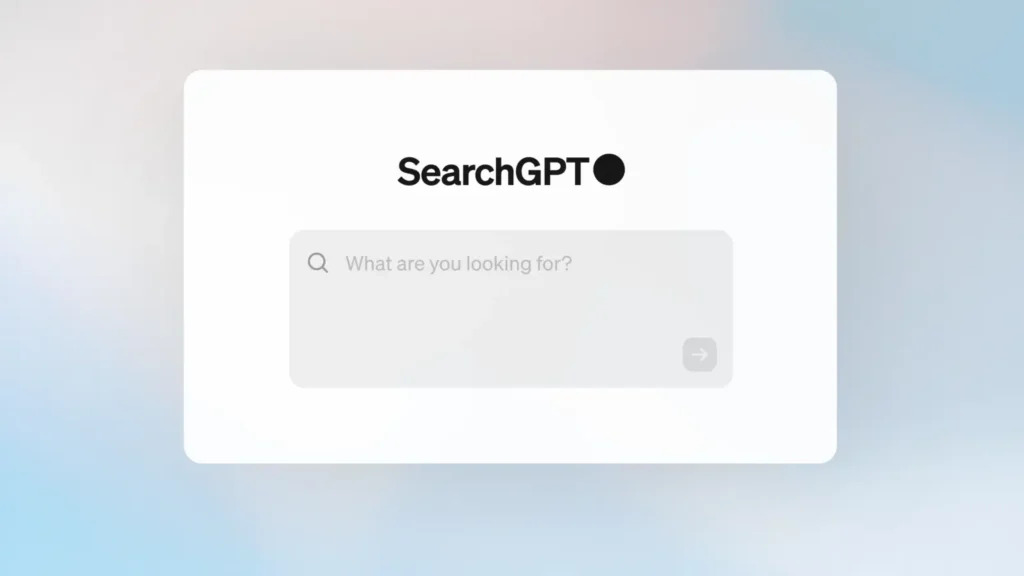How SearchGPT is Different from Google Chrome & Mozilla Firefox: A Detailed Comparison

Introduction: Navigating the Digital Landscape
In the ever-evolving digital landscape, web browsers and search engines play pivotal roles in how we access and interact with information. While Google Chrome and Mozilla Firefox have long been staples in the web browsing world, new technologies like SearchGPT are emerging, offering unique features and functionalities. This blog explores how SearchGPT stands apart from traditional browsers like Google Chrome and Mozilla Firefox, highlighting key comparison points.
1. Core Functionality: Browser vs. Search Engine
SearchGPT: A Conversational Search Engine
SearchGPT is an AI-powered search engine designed to provide conversational, context-aware responses to user queries. It leverages advanced natural language processing (NLP) to understand and respond to questions in a more human-like manner. Instead of returning a list of links, SearchGPT provides direct, detailed answers.
Google Chrome & Mozilla Firefox: Web Browsers
Google Chrome and Mozilla Firefox are web browsers that facilitate access to the internet. They allow users to visit websites, download content, and interact with online applications. These browsers support multiple search engines, including Google, Bing, and others, but they primarily function as platforms for web navigation.
2. User Experience: Interaction and Interface
SearchGPT: Conversational Interface
SearchGPT offers a conversational interface where users can ask questions and receive immediate, contextual responses. This interaction mimics a dialogue, making information retrieval more intuitive and efficient. Users can ask follow-up questions and receive clarifications without needing to sift through multiple web pages.
Google Chrome & Mozilla Firefox: Traditional Browsing Experience
Both Google Chrome and Mozilla Firefox provide a traditional browsing experience. Users type queries into the address bar or search engine interface and receive a list of web pages that might contain the relevant information. While these browsers are highly efficient at navigating the web, the process involves more user effort to find specific answers.
3. Information Delivery: Direct Answers vs. Search Results
SearchGPT: Direct Answers
SearchGPT excels in delivering direct answers to user queries. By understanding the context and nuances of a question, it provides detailed, accurate responses without the need for users to click through multiple links. This is particularly useful for quick information retrieval and learning.
Google Chrome & Mozilla Firefox: Search Results
When using search engines within Google Chrome or Mozilla Firefox, users receive a list of search results ranked by relevance. While these results are often accurate, users must still visit individual websites to gather the desired information. This traditional method can be time-consuming and may require more effort to find specific details.
4. Personalization and Learning
SearchGPT: Adaptive Learning
SearchGPT leverages machine learning to adapt to user preferences and improve over time. It can remember past interactions and provide more personalized responses based on previous queries. This adaptive learning enhances the user experience by tailoring answers to individual needs.
Google Chrome & Mozilla Firefox: Extensions and Plugins
While Google Chrome and Mozilla Firefox do not inherently learn from user interactions, they offer a wide range of extensions and plugins that can personalize the browsing experience. Users can install tools for ad-blocking, password management, and other functionalities, customizing their browser to suit their preferences.
5. Privacy and Security
SearchGPT: Privacy-Focused
SearchGPT emphasizes user privacy by not tracking individual search history or personal data. This focus on privacy ensures that users can ask questions and receive answers without concerns about data being stored or used for targeted advertising.
Google Chrome & Mozilla Firefox: Robust Security Features
Both Google Chrome and Mozilla Firefox are known for their robust security features, including phishing and malware protection, secure browsing modes, and regular updates to address vulnerabilities. However, they do collect some user data to improve services and deliver personalized ads.
Conclusion: Choosing the Right Tool for Your Needs
The choice between SearchGPT, Google Chrome, and Mozilla Firefox depends on your specific needs and preferences. If you value direct, conversational answers and privacy, SearchGPT offers a unique and efficient solution. For comprehensive web browsing with customizable features, Google Chrome and Mozilla Firefox remain top choices.
Each tool has its strengths, and understanding these differences can help you make an informed decision about which platform best suits your digital lifestyle.